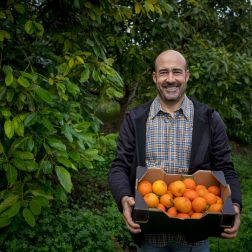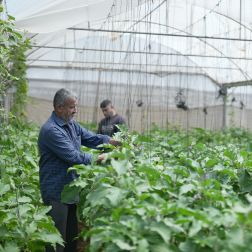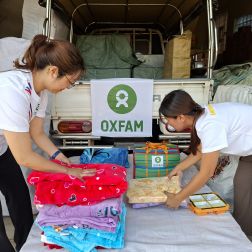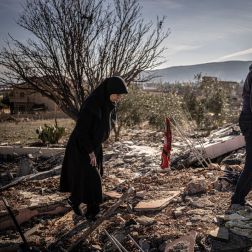- 5 mins read time
- Published: 8th December 2020
International Day of Education: I want to stay in school. It will help me forget about my past
This Sunday, 24 January, marks the third International Day of Education. It would have been difficult to imagine, this time last year, the disruption that the pandemic would bring – especially to education systems around the world.
The closure of schools, universities and other institutions, as well as the interruption of many learning programmes, has affected the lives of 1.6 billion students in over 190 countries.
While governments mobilised quickly to provide alternative solutions, the UN estimates that at least one third of the world’s students have not been able to access remote learning.
For the world’s most vulnerable children and teenagers, the closure of schools due the virus could mean the end of their education. Teenagers like Okello*, who – after many difficult years – had just returned to school.
‘Most of them are losing hope’
Okello (17) fled the war in South Sudan and now lives in the Palabek refugee camp in northern Uganda. For a while she did not go to school. Luckily, she was able to join the Oxfam-led Education for Life programme, which helps young people like her get back into the school system through an accelerated learning project.

For a brief moment, she imagined a better future. Then the pandemic came along. “Covid-19 has forced me to drop out of school again. I’m pregnant now. And I’m really sad,” Okello says.
Unfortunately, Okello’s story is far from unique. In her district, the number of teenage pregnancies has risen by 40 percent during the corona lockdown. It will affect the girls for a long time, says Johnson Okwera, programme manager for AVSI in Palabek, which is implementing the EU-funded Education for Life programme at 24 schools in the area.
“I really worry for all of our learners – but especially the girls. Thirteen girls from the Education for Life program have become pregnant during the coronavirus crisis,” Johnson explains.
“Most of them are survivors of abuse, some have just been unlucky – or they have not had access to sexual reproductive health information, because people fear to go to health facilities due to the pandemic. Covid-19 has gripped focus from other health care services – there is no room for family planning services, means of livelihoods or parenting at the moment. But one thing is certain: these girls did not choose to become pregnant at such a young age.”
Schools are a safe space
For children in vulnerable contexts, school is much more than a place where they can learn how to read and write. Schools provide security and protection against violence and abuse, and their closure is hitting this part of the world hard.
For the more mature learners, the loss of school is especially hard. As they are already older than typical school children, they cannot necessarily postpone schooling until later. And a large proportion of these learners fled the war in South Sudan alone, without their parents, so there is nobody to take care of them when they stay at home during the crisis.
“My learners are deeply demoralised. Many of them are losing hope,” says teacher Jennifer Cynthia Akongo.
With the already biting poverty in the refugee settlement, the pandemic has only made the situation worse. Food resources are scarce, and many families have no income at all.

“Some of the learners have even returned to South Sudan, now that the school is closed and they have nothing to do here. Recently we heard that one of the boys has been killed. It’s unbelievably sad.”
Jennifer and the other teachers in the programme have been fighting hard, working tirelessly to keep the learners’ education going on. Every day, they walk around the settlement knocking on the learners’ doors to offer home schooling and support.
‘In the beginning, we distributed home-study materials to all the students,” Jennifer says. “Then we started gathering them outside in small groups of four or five students, to support them in their self-study once a week as they work in the garden and do home chores – we are doing our best amidst their schedules.”
Through the Education for Life programme, teachers are trained to pay extra attention to the most vulnerable children – who, for various reasons, are at extra risk of dropping out of school. They guide the learners and listen to their problems. Okello says it makes a world of difference.
“I feel sad because of the pregnancy,” she says. “I am not free to move among my classmates. I fear being laughed at by my fellow students if I return to school. But my teachers have visited me several times during the last few weeks, and they have helped me a lot. They have been telling me that this is not the end of my life. After a safe delivery, I can go back to school.
<p>“I really want to continue with my education. It will help me forget about the challenges in my past and continue with a normal life. My dream is to become a teacher one day, so I can tell future generations to stay in school and finish their education. It is so important.”</p>
*Name changed to protect identity
Okello’s story by Rikke Hovn Poulsen. This article was produced with the financial support of the European Union. Its contents are the sole responsibility of the Education for Life consortium partners and do not necessarily reflect the views of the European Union.




